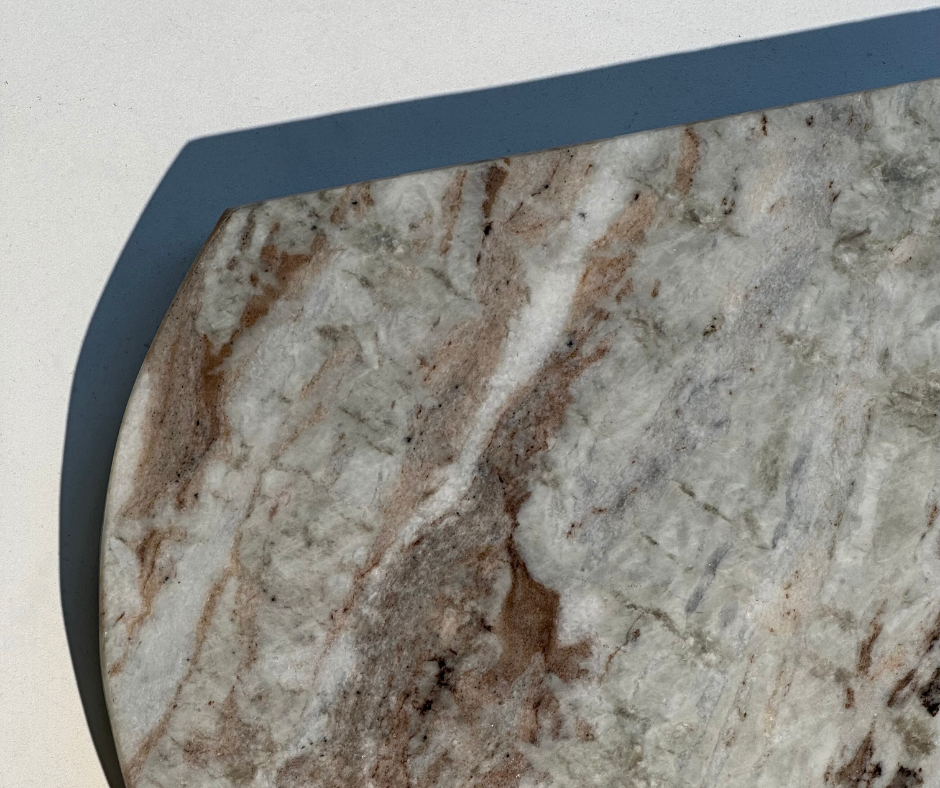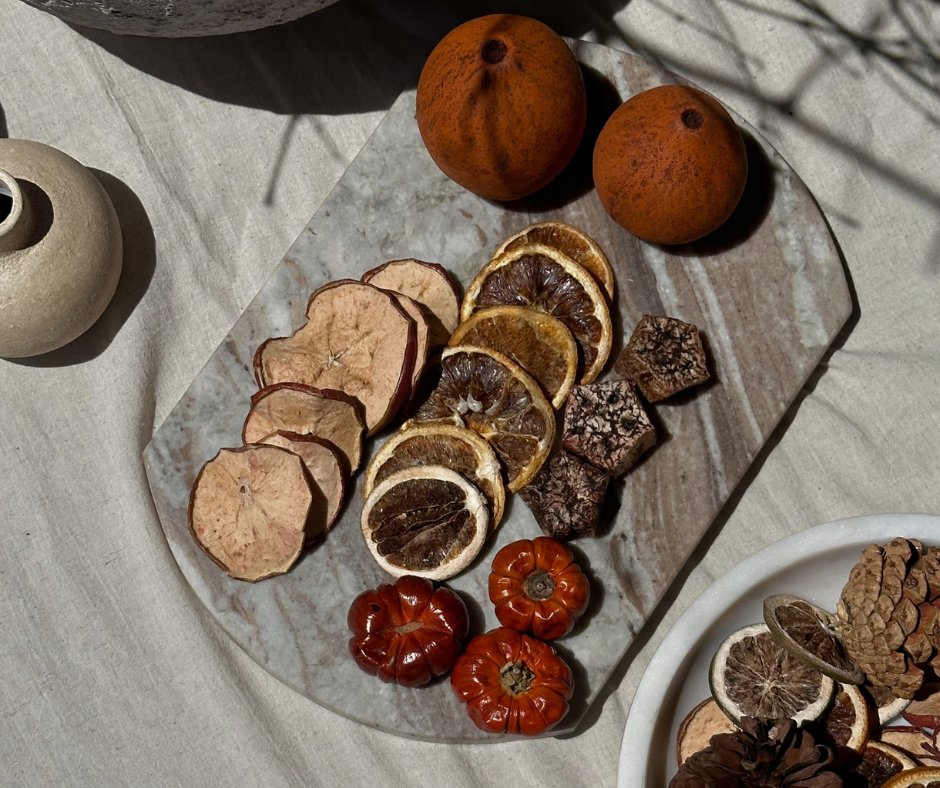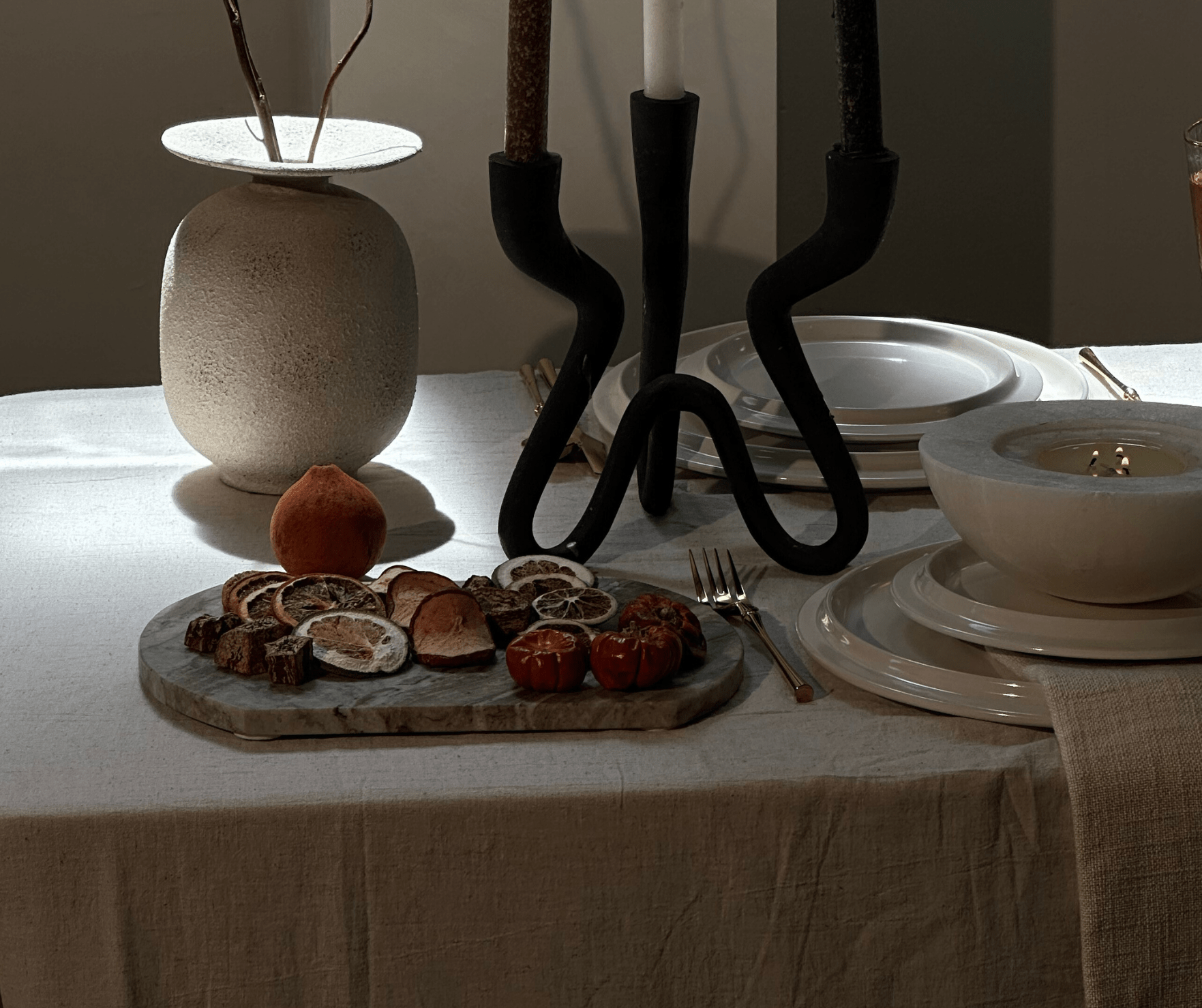The marble cutting board is a virtuoso, lending its timeless elegance to every culinary creation. To safeguard its beauty and elevate its functionality, the art of treating and nurturing your marble cutting board becomes an indispensable act of culinary devotion. In this guide, we embark on a journey to unravel the intricate steps and techniques that transform the care of your marble cutting board into a harmonious symphony—an ode to craftsmanship, a ritual of preservation, and an expression of love for this culinary cornerstone.
Why It Is Important To Treat Your Cutting Boards

Before engaging in the artful treatment, it's essential to appreciate the intrinsic qualities of marble. Its porous nature, cool surface, and distinctive veining patterns impart a unique charm that demands a nuanced and thoughtful approach to care. Recognizing the inherent elegance of marble sets the stage for a treatment that goes beyond routine maintenance.
Treating your marble cutting board is a proactive measure that safeguards its beauty, functionality, and hygiene. By incorporating regular treatments into your kitchen care routine, you not only protect your investment in this culinary tool but also ensure it remains a timeless and reliable asset in your kitchen for years to come.
The Essential Tools For Proper Treatment
Utilize these tools for the best results in treating your marble cutting board.
Food-Grade Mineral Oil:
A nourishing elixir that revitalizes the marble's natural luster. Marble is a natural stone that can dry out over time, and mineral oil helps replenish its natural oils, preventing it from becoming excessively dry, prone to cracks, or losing its vibrant colors.
Marble Sealer:
A protective shield that guards against stains and wear. Marble sealers create a protective barrier that helps prevent stains, scratches, and other damage. Follow the manufacturer's instructions for application and drying.
Soft Microfiber Cloth or Sponge:
A gentle companion for applying treatments and wiping surfaces.
Mild Dish Soap:
For a pre-treatment cleanse to rid the board of any residue.Choose a dish soap that is made from natural ingredients and is pH-balanced. pH-neutral or slightly alkaline soaps are preferable, as highly acidic or alkaline solutions can harm the marble surface over time. Avoid dish soaps that contain abrasive substances, bleach, ammonia, or other harsh chemicals.
Warm Water:
The essential element that underlines the gentle cleansing ritual. Rapid temperature changes, such as washing a hot cutting board with cold water, can lead to thermal shock and potentially cause damage to the marble. Using warm water helps prevent sudden temperature fluctuations that could impact the integrity of the stone.
6 Ways To Treat Your Marble Cutting Boards

Gentle Cleaning with Mild Liquid Dish Soap:
Begin by giving your marble cutting board a thorough yet gentle cleaning. Use a mild dish soap and warm water to remove any surface debris, stains, or odors. Avoid harsh chemicals that could damage the marble.
Nourishing Massage with Food Safe Mineral Oil:
Treat your marble cutting board to a nourishing massage with food-grade mineral oil. Apply a generous amount of mineral oil to the entire surface using a soft cloth or sponge. The oil helps moisturize the marble, enhance its natural colors, and create a protective layer.
Wipe Away Excess Oil:
After applying mineral oil, allow it to soak into the marble for several hours or overnight. Then, use a clean, dry cloth to wipe away any excess oil. This step ensures that the board is left with a smooth and non-greasy finish.
Seal the Surface with Marble Sealer:
For an additional layer of protection, consider applying a marble sealer. Marble sealers create a protective barrier that helps prevent stains, scratches, and other damage. Follow the manufacturer's instructions for the specific sealer you choose, allowing it to dry completely before using the cutting board.
Use Cutting Board Mats for Specific Tasks:
Minimize direct contact with potentially damaging substances by using cutting board mats or parchment paper, especially when handling raw meats or highly pigmented foods. This precaution helps prevent stains and scratches on the marble surface.
Regular Rejuvenation:
Make treating your marble cutting board a regular part of your kitchen care routine. Depending on usage and exposure, consider repeating the mineral oil treatment and sealing process every few months or as needed. Regular rejuvenation helps maintain the board's appearance and functionality over time.
Remember, each marble cutting board is unique, and factors like usage frequency and the types of foods prepared can influence the need for treatment.
Frequently Asked Questions

Why choose a marble cutting board over other materials like wood or plastic?
Marble cutting boards offer a unique blend of aesthetics and functionality. They provide a cool surface for precision tasks, are knife-friendly, and have a timeless elegance that enhances kitchen aesthetics. Unlike wood cutting boards, marble is non-porous, making it more hygienic, and it adds a touch of sophistication not found in plastic alternatives.
Do marble cutting boards require special care?
Marble cutting boards benefit from specific care practices. Avoiding acidic substances, using mild cleansers, and drying promptly after cleaning helps maintain their beauty. Additionally, periodic resealing can protect the surface and enhance its longevity.
Does using a marble cutting board dull knives?
Marble is softer than some cutting board materials, which can be beneficial for knife longevity. While it may not dull knives as quickly as harder surfaces, it's still essential to regularly sharpen your knives to maintain optimal cutting performance.
Can I use a marble cutting board for hot items or as a serving platter?
Marble has natural temperature-retaining properties, making it suitable for tasks like rolling out pastry dough or tempering chocolate. However, sudden extreme temperature changes should be avoided. While marble cutting boards can be used for serving, ensure the surface is clean and free from any potential contaminants.
Are there any foods that should be avoided on a marble cutting board?
Marble is sensitive to acidic substances, so it's advisable to avoid cutting acidic foods like citrus fruits directly on the surface. Additionally, highly pigmented foods may stain the marble, so it's recommended to clean the board promptly after cutting such items.
What cleaning solutions can be used on a marble cutting board?
When it comes to cleaning a marble cutting board, opt for gentle yet effective cleaners that preserve the natural beauty of this exquisite stone, such as mild dish soap or a neutral pH cleaner. Always exercise caution with abrasive or acidic cleaners, such as distilled white vinegar, to prevent harm to the marble surface. Avoid using hot water or lemon juice, and use caution with baking soda as it is mildly abrasive and has a gritty texture, which can potentially scratch and damage the surface of the marble.
The Value of Nurturing Your Cutting Boards

The value of nurturing your marble cutting boards transcends the routine care of kitchen tools; it becomes an art form, an expression of devotion to the heart of your culinary space. As you delicately cleanse, nourish, and protect these elegant surfaces, you not only preserve their intrinsic beauty but also weave a story of timeless sophistication within the fabric of your kitchen. Marble's inherent durability ensures resilience against wear and scratches, surpassing the longevity of wood or plastic cutting boards.
The tactile rituals of applying mineral oil and sealing become more than mere tasks; they symbolize a commitment to craftsmanship, a pledge to maintain hygiene, and a recognition of the lasting legacy embedded in each slice and chop. So, in the quiet moments of kitchen care, remember that the value of nurturing your marble cutting boards lies not just in the tangible benefits but in the creation of an enduring symphony—a harmonious blend of functionality, aesthetics, and the rich history of your culinary endeavors.
Looking for the perfect marble cutting board? Our Organic Stone Marble Cutting Board blends aesthetic and resilience all in one. Visit our website to learn more about this stunning kitchen accessory.







